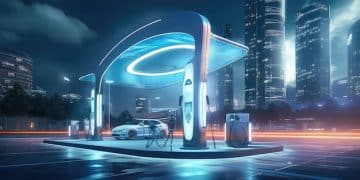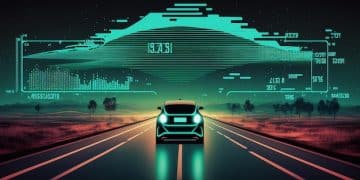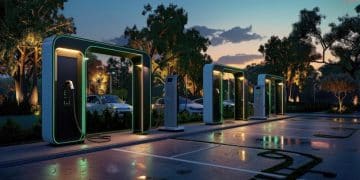Major Automakers Phase Out Gasoline Engines by 2035: What It Means for You
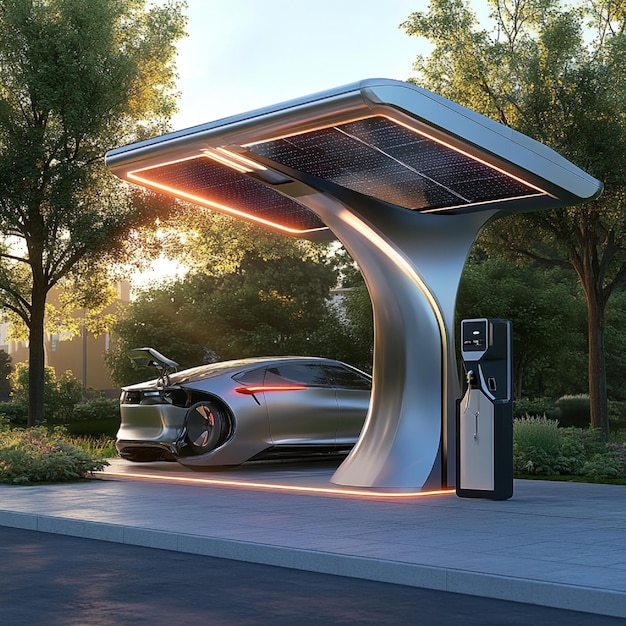
Major automakers have pledged to phase out gasoline engines by 2035, marking a significant shift towards electric vehicles. This transition will impact consumers, the automotive industry, and the environment, driving innovation and sustainability efforts forward.
The automotive industry is undergoing a massive transformation. Major Automakers Pledge to Phase Out Gasoline Engines by 2035: What This Means for You is a question many drivers are asking. What does this commitment mean for the future of driving, our wallets, and the planet?
Several leading automakers have publicly committed to phasing out gasoline-powered vehicles by 2035. This ambitious goal has significant implications for consumers, the environment, and the broader economy. Let’s dive deeper into this groundbreaking pledge and explore what it means for you.
The Driving Forces Behind the 2035 Pledge
Why are major automakers making this significant shift away from gasoline engines? Several factors are converging to accelerate the transition to electric vehicles (EVs).
Environmental Concerns and Regulations
One of the primary drivers is growing environmental concerns. Governments worldwide are implementing stricter regulations to reduce carbon emissions and combat climate change. Automakers are responding by investing heavily in electric vehicle technology to meet these mandates.
Advancements in Electric Vehicle Technology
Significant advancements in battery technology, charging infrastructure, and electric powertrain performance have made EVs a more viable alternative to gasoline vehicles. Increased range, faster charging times, and improved performance are making EVs more appealing to consumers.
- Improved Battery Technology: Higher energy density batteries allow for longer driving ranges.
- Expanding Charging Infrastructure: The number of public charging stations is rapidly increasing.
- Enhanced EV Performance: Electric vehicles now offer comparable or even superior performance to gasoline cars.
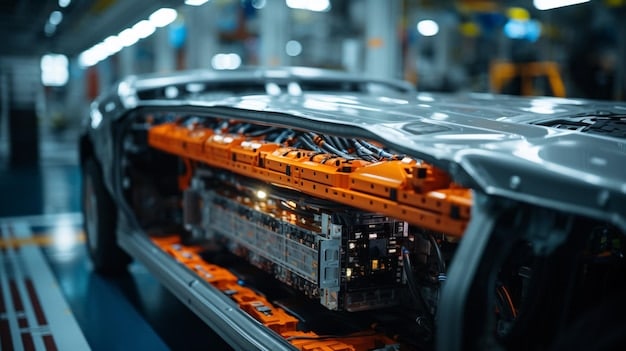
The combination of environmental pressures and technological advancements is compelling automakers to embrace electric vehicles as the future of transportation. This pledge is not just a marketing ploy but a strategic move to stay competitive in a rapidly changing market.
What Major Automakers Pledge to Phase Out Gasoline Engines by 2035 Means for Consumers
The pledge by major automakers to phase out gasoline engines by 2035 has a direct impact on consumers. Here’s how this commitment will affect your choices, costs, and driving experience.
Shifting Vehicle Options
As the deadline approaches, consumers can expect to see a growing number of electric vehicle models available. Automakers will be phasing out gasoline-powered cars and trucks, focusing on EVs and potentially other alternative fuel vehicles.
Potential Cost Savings
While the initial purchase price of an EV may be higher than a comparable gasoline car, consumers can save money in the long run due to lower fuel and maintenance costs. Electricity is generally cheaper than gasoline, and EVs have fewer moving parts, reducing the need for frequent maintenance.
- Lower Fuel Costs: Electricity is typically cheaper than gasoline, resulting in significant savings.
- Reduced Maintenance: EVs require less maintenance due to fewer moving parts.
- Government Incentives: Tax credits and rebates can help offset the initial cost of an EV.
Switching to an electric vehicle can lead to substantial savings over the lifespan of the vehicle, making the transition more economically appealing for consumers.
The Environmental Impact of Phasing Out Gasoline Engines
One of the most significant benefits of phasing out gasoline engines is the positive impact on the environment. Electric vehicles produce zero tailpipe emissions, contributing to cleaner air and a reduction in greenhouse gas emissions.
Reduced Greenhouse Gas Emissions
Electric vehicles significantly reduce greenhouse gas emissions, especially when powered by renewable energy sources. This helps combat climate change and mitigate the effects of global warming.
Improved Air Quality
Gasoline vehicles are a major source of air pollution, emitting harmful pollutants that can cause respiratory problems and other health issues. Electric vehicles produce zero tailpipe emissions, leading to cleaner air and improved public health.

The transition to electric vehicles offers a significant opportunity to reduce our carbon footprint and create a more sustainable future for generations to come. This environmental benefit is a primary motivator for the automotive industry’s shift towards electric vehicles.
Challenges and Obstacles to Overcome
While the pledge to phase out gasoline engines by 2035 is ambitious and promising, there are several challenges and obstacles that need to be addressed to ensure a smooth transition.
Charging Infrastructure
One of the biggest challenges is the lack of widespread charging infrastructure. To support a large number of EVs, there needs to be a significant increase in the number of public charging stations, especially in rural areas and apartment complexes.
Battery Technology and Supply Chain
Advancements in battery technology are crucial for improving the range, charging time, and cost of EVs. Additionally, securing a reliable and sustainable supply chain for battery materials is essential.
- Expanding Charging Networks: Investing in public and private charging infrastructure is critical.
- Improving Battery Performance: Continued research and development are needed to enhance battery technology.
- Securing Supply Chains: Ensuring a stable and ethical supply of battery materials is essential.
Overcoming these challenges will require collaboration between automakers, governments, and other stakeholders to create a supportive ecosystem for electric vehicles. Addressing these obstacles will pave the way for the successful implementation of Major Automakers Pledge to Phase Out Gasoline Engines by 2035.
The Future of the Automotive Industry
The pledge to phase out gasoline engines by 2035 is reshaping the automotive industry and creating new opportunities for innovation and growth. Here are some of the trends and developments to watch for.
Innovation in Electric Vehicle Technology
Automakers are investing heavily in research and development to improve the performance, range, and cost of electric vehicles. This includes advancements in battery technology, electric powertrains, and autonomous driving systems.
New Business Models and Partnerships
The transition to electric vehicles is leading to new business models and partnerships between automakers, technology companies, and energy providers. These collaborations are driving innovation and creating new opportunities in the EV market.
The automotive industry is evolving at a rapid pace, driven by the shift towards electric vehicles and the need for more sustainable transportation solutions. As Major Automakers Pledge to Phase Out Gasoline Engines by 2035, they are positioning themselves for long-term success in a changing world.
| Key Point | Brief Description |
|---|---|
| 🌱 Environmental Impact | Reduced emissions and improved air quality. |
| 💰 Cost Savings | Lower fuel and maintenance expenses. |
| ⚡ Charging Infrastructure | Expanding networks are essential for EV adoption. |
| 🚗 Vehicle Options | Increased availability of electric models. |
Frequently Asked Questions
Current gasoline car owners can continue to drive and resell their vehicles. The pledge primarily affects the production of new gasoline-powered vehicles after 2035.
Yes, with advancements in battery technology and increased production, electric vehicles are expected to become more affordable and competitive in price with gasoline cars.
Governments and private companies are investing in expanding the charging infrastructure, including more public charging stations and faster charging technologies.
Challenges include the initial cost of EVs, the limited range compared to gasoline cars, and the availability of charging stations, especially in rural areas.
While ambitious, major automakers are making significant investments in electric vehicle technology and production, indicating a strong commitment to the 2035 goal.
Conclusion
The pledge by major automakers to phase out gasoline engines by 2035 represents a pivotal moment in the automotive industry, signaling a decisive shift towards electric vehicles and sustainable transportation. This transition promises numerous benefits, including reduced emissions, improved air quality, and long-term cost savings for consumers.
While challenges remain, the collective efforts of automakers, governments, and technology companies are paving the way for a cleaner, more efficient, and environmentally friendly future on the road. The implementation of Major Automakers Pledge to Phase Out Gasoline Engines by 2035: What This Means for You is a win for consumers.
